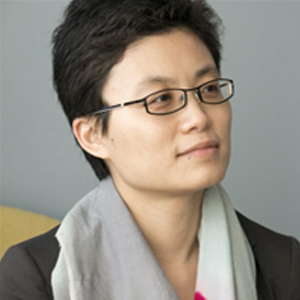全球视野下的中国媒体:融合与冲突

Instructor Name
Bingchun Meng
Instructor Biography
Bingchun Meng is a Professor in the Department for Media and Communications at LSE and the Director of LSE PhD Academy. She is also the Co-Director of LSE-Fudan Research Centre for Global Public Policy. Her research interests include gender and the media, political economy of media industries, communication governance, and comparative media studies. She has published widely in these topic areas on leading academic journals. From 2020 to 2021, she served as a Senior Fellow of Global Governance Futures 2035 organized by Global Public Policy Institute in Berlin under the sponsorship with Bosch Foundation. Her book The Politics of Chinese Media: Consensus and Contestation was published by Palgrave in early 2018. Her co-edited volume (with Guobin Yang and Elaine Yuan) Pandemic Crossings: Digital Technology, Everyday Experience and Governance in the Covid-19 Crisis is coming out with Michigan University Press in January 2024. She is currently working on another monograph under contract with Columbia University Press about AI industries in China.
Course Description:
Chinese media and communication industries have been undergoing profound changes in the last few decades. On the one hand, the Chinese government prioritizes the communication industry as a key sector driving the economic growth, taking multiple roles as media industry facilitator, regulator, and collaborator. It also has launched various ‘soft power’ campaigns to 'tell good China stories' on the international stage. On the other hand, transnational media companies have wasted no time in not only entering the Chinese market but also incorporating Chinese investment. At the industry level, marketization, globalization and media convergence have significantly reconfigured the landscape of content production and distribution in China. For users, the proliferation of media content coupled with the fast development of communication technologies has been a process fraught with exhilaration, confusion and contestation.
This course provides critical analysis of the key aspects of the aforementioned transformation, focusing on the political economy of media and communication industries as well as the mediated politics underpinning stories and texts. It will unpack the operation of media and communication industries at the intersection of politics, commerce, and culture. It will also explore the tensions and conflicts around meanings and narratives at the conjuncture of China’s economic growth, social stratification and geopolitical repositioning.
Course Schedule
Ten Session Topics
The political economy of media and communication industries
Media convergence and digital networks
Creative labour and user-generated content
From the institutional to the textual: Why stories matter?
The transformation of Chinese communication industries
Media and Global China
Regulated carnivals: Entertainment media in China
Beyond censorship: News production and journalism
From Little Pinko to popular feminism: Mediated politics in the online space
Summary and reflection
Learning Outcomes
By the end of the course, students shall be able to demonstrate understanding of the key issues below, as well as developing the analytical perspectives and building in-depth empirical knowledge to formulate independent and coherent views on the relevant debate around these issues.
What are the contemporary features of the organization and operation of media production and distribution?
How do the institutional relations and political economic contexts shape the production of media content?
What is the changing nature of creative work in a networked digital environment?
What are the key tensions around the political, the commercial and the cultural aspects of media and communication products?
What is the structural transformation that media and communication industries in China have been going through and how that is related to the broader political economy and social transformation?
What are some of the competing narratives offered by international media about China, by Chinese media to their international and domestic audiences, and by Chinese people of different social class recounting their lived experiences? What are the key themes of mediated politics emerging from these competing narratives?




